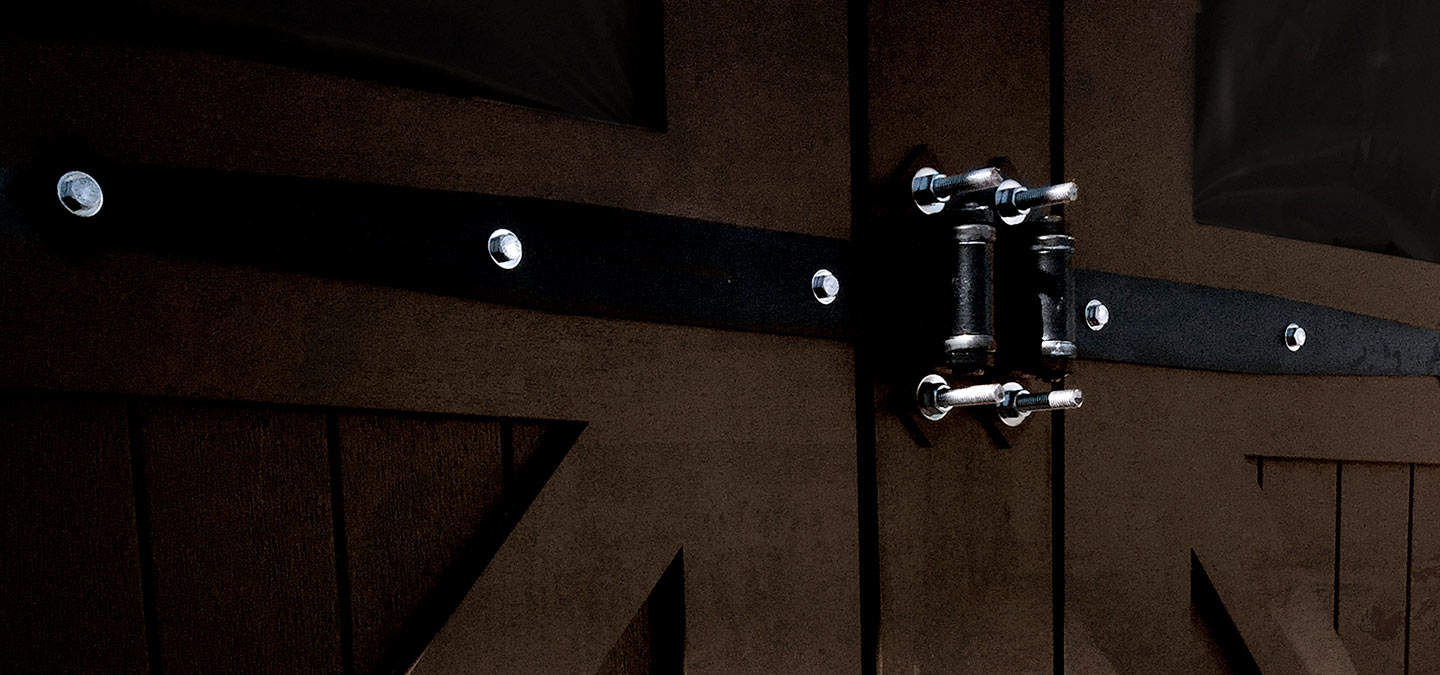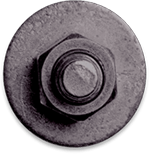What is the single most important piece of hardware in any swinging door?
At RW Hardware, we would argue it’s the humble hinge.
Although they’re often out of sight and out of mind, hinges are absolutely essential to the success of any door. Not only do they support and literally uphold the door, hinges also impact its functionality, its longevity—even its aesthetic.
Does your door make annoying squeaking noises when it opens and closes, or is it quiet and smooth? Does your hinge clash with the aesthetic of the door and the surrounding environment, or is it a natural fit? Do you have to disassemble your door and replace its hardware often, or does it continue to work like new for years and years?
It all hinges on… well, hinges.
Fortunately, RW’s online store makes finding the right hinges easy. We offer a huge selection of specialty door hardware, including barn door hinges, carriage door hinges, stall door hinges, offset hinges, and swinging door hinges, as well as sliding door hardware, track hardware, and much more. (Note: Due to ongoing supply issues, some of our products are currently made to order.)
Let’s help you find the right hinge
From backplates to ball bearings, this quick, simple Buyer’s Guide will walk you through the basics of selecting the right hinge for your door. Whether it’s a small DIY project or a larger-scale industrial job, these tips will help you find the best product for your needs.
If you have any questions or need help finding the right product, you can get in touch with our support team any time at 800-253-5668.
What type of hinges do you need?
If you’re building any type of swinging door, you will need strap hinges. These hinges attach to either the door frame or the wall, depending on whether you want your door to clear its frame.
If you are building a slide-fold door system, you will need center strap hinges, which allow the door to fold as it opens and closes. In addition to hinges, a sliding door will also need a hanging door track system.
The 3 categories of hinges
In RW’s online shop, you will find 3 broad categories of hinges: Standard, Industrial and Decorative. No one category is ‘better’ than the others, but they do serve different purposes.
A standard hinge is a good fit for most projects, such as stall doors or carriage house doors. Our standard hinges are made with high-quality steel for durability, finished with a powder coat for long-lasting aesthetic appeal, and backed by one of the best warranties in the industry.
If you need a hinge fit for a heavy-duty industrial setting, we recommend our industrial hinges. These are made with thicker steel and designed for long-lasting, reliable performance in the toughest conditions.
Finally, if the aesthetic quality of your hinge is especially important, go with our decorative hinges. These attractive hinges add some curb appeal to your hardware, perfect for at-home, on-the-farm, or customer-facing projects.
What’s the right hinge length, and how many hinges do you need?
The length and number of hinges you need is dependent on the dimensions of your door.
As a rule of thumb, we recommend selecting a hinge with a length equal to about 1/3rd of your total door width. Meanwhile, you should generally use one hinge for every 30 inches of door height. (Note: These are rough estimates, and they may change depending on the weight of your door and other factors.)
If you want a more precise estimate, you can calculate the “moment” of your door. The moment is simply a measurement of the force an object (your door) exerts in motion, while turning.
To determine your door’s moment, simply multiply its weight (in pounds) by its width (in feet).
Weight (lbs) x Width (ft) = Moment
For example:
1,000 lbs x 4 ft = 4,000 ft/lbs of Moment
Once you calculate your door’s moment, you can align this with the manufacturers’ recommendations to select the right type and number of hinges for your door. (Remember, if you need help finding the right hinges for your project, you can contact us anytime at 800-253-5668.)
Disc-bearing or ball-bearing?
Do you need a ball-bearing hinge, or will a disc-bearing hinge work for you? It all depends on how often you plan to use your door.
If your door will be operated fewer than 20x/day, a disc-bearing hinge should do the job. If, however, your door will be operated more than 20x/day, we recommend investing in a ball-bearing hinge. In the long run, it could save you time, money and hassle.
Do you need a backplate?
A simple but important piece of hardware, a backplate is a length of steel that distributes the force of a hinge and its fasteners over a larger surface area (think of it as a giant washer). By distributing that force, the backplate reduces the amount of stress exerted on any one part of your door, preventing damage.
If you plan to use a hinge on an unreinforced door, we always recommend investing in a backplate. It will protect your door and save you money in the long run.
Explore RW’s full line of hardware solutions
Hinges are critical to the strength, stability, function and longevity of your door—but they’re only the beginning. Swing by RW’s online store today to explore our full line of products, from barn door hardware and swinging door hardware to carriage door hardware and sliding barn door hardware kits.
All the quality products you need are just a click away, including:
Hinges
Hardware kits
Hanging door tracks
Hanging brackets
Pulls and handles
Cane and spring bolts
Trucks and hangers
Accessories
Latches
Discover RW’s “Hold Strong” legacy
For more than 140 years, the people of RW hardware have restlessly pursued our passion for creating the highest-quality hardware solutions. From humble origins to a globally recognized brand, we have pushed the industry forward with constant innovation and a relentless commitment to quality.
Today, we partner with our clients to create hardware solutions built to withstand just about anything—from a charging rhino to the test of time.
Learn more about our legacy and what it means to Hold Strong.


